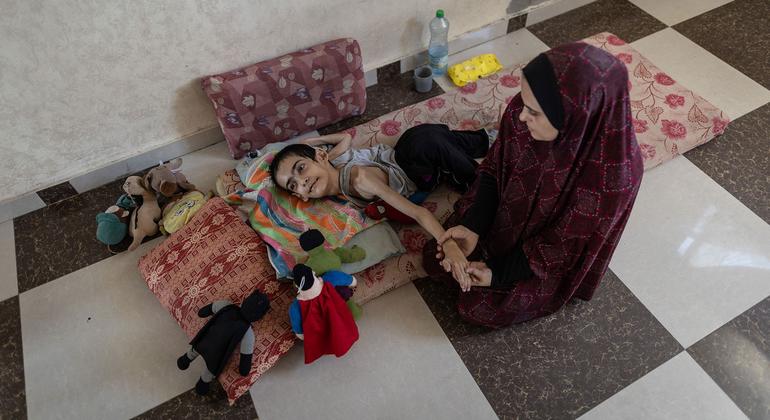Humanitarian agencies intensified their efforts on Monday to provide assistance to Gaza, coinciding with a second ten-hour pause in Israeli military operations in various areas of the territory. Since the start of the offensive, at least 147 people have died from hunger, including 74 from 2025 and 63 just in July, according to reports from the Gaza Ministry of Health.
In response to growing international concern, the Israeli government announced on Sunday “humanitarian pauses” of ten hours daily in locations such as Gaza City, Deir al-Balah, and Al Mawasi, in order to facilitate the entry of humanitarian aid. Last Sunday, 73 supply trucks managed to enter the territory, which represents only 10% of what the population needs daily, according to UNRWA, the United Nations Agency for Palestinian Refugees. This organization stressed the urgent need to open all border crossings, as thousands of trucks with food, medicines, and hygiene items are awaiting authorization in Jordan and Egypt.
In a broader context, UN Secretary-General António Guterres warned that the two-state solution for the Israel-Palestine conflict is further away than ever, although he emphasized that it remains the only viable path to a just and lasting peace in the region. During his speech at the High-Level International Conference for Peace in Palestine, organized by France and Saudi Arabia, Guterres urged the international community to demonstrate “political will, courageous leadership, and a commitment to the truth.” He also condemned that actions on the ground are “dismantling the pillars of peace,” urging a halt to the annexation of the West Bank and the mass destruction in Gaza.
A Palestinian representative at the conference stated that such meetings send a clear message of support for Palestinian rights, emphasizing that both Palestinians and Israelis are not condemned to eternal conflict and that there is a path to peace and regional integration.
On another note, Geir O. Pedersen, the UN special envoy for Syria, has raised concerns about a recent escalation of violence in Suweida, which has affected the already fragile political transition in the country. Pedersen condemned tribal clashes, as well as extrajudicial executions and airstrikes, stressing the need for the Syrian state to regain control and ensure the safety of its citizens.
Globally, although hunger has decreased slightly, food inflation remains an obstacle to access to healthy diets, affecting over 2.6 billion people. At a meeting held in Addis Ababa, the UN Secretary-General reiterated that hunger should never be used as a weapon of war.
via: MiMub in Spanish











